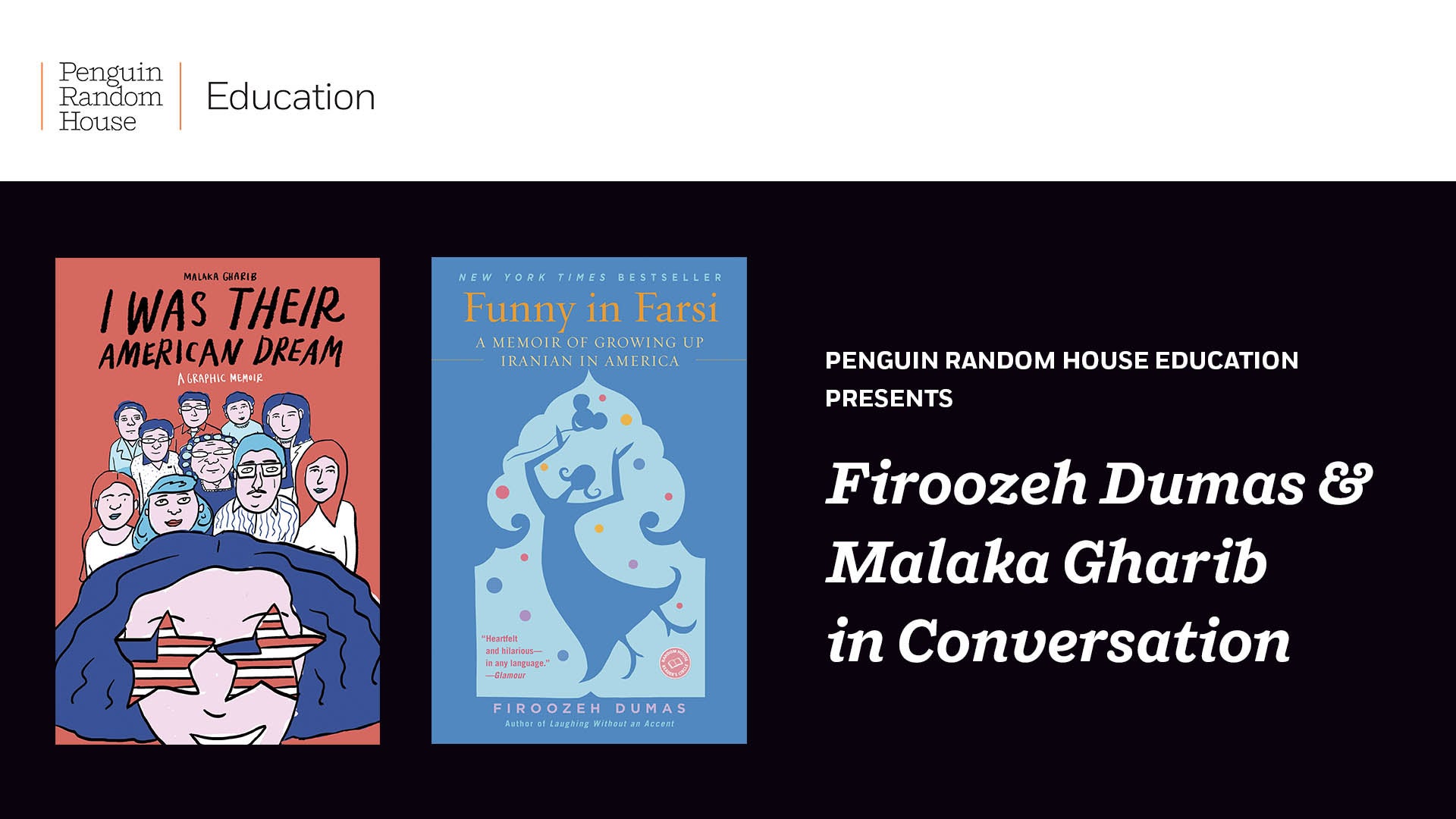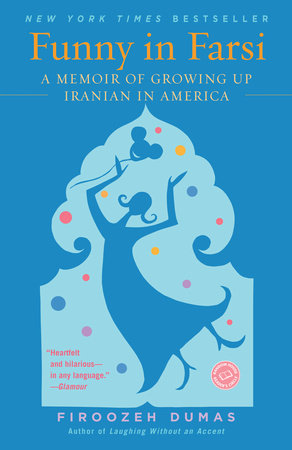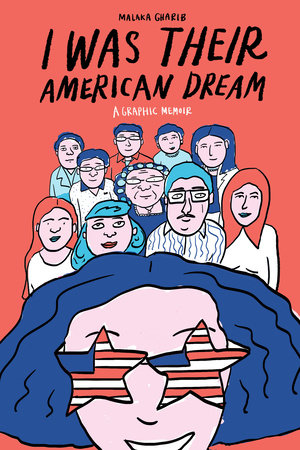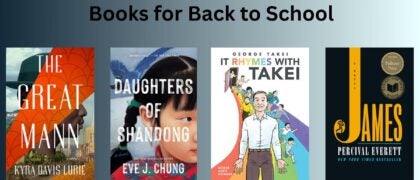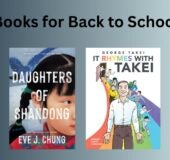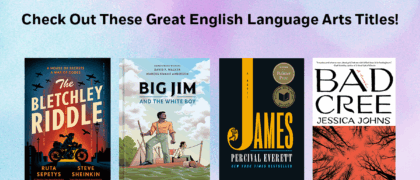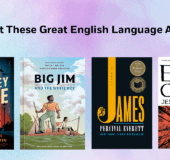Firoozeh Dumas, author of Funny in Farsi: A Memoir of Growing Up Iranian in America, and Malaka Gharib, author of I Was Their American Dream: A Graphic Memoir, sat down over Zoom for a conversation about their books, the value of representation, using humor and joy as teaching tools, and how positive change begins in the classroom with dedicated educators.
Watch the video of their interview above or read on for excerpts from the conversation. The excerpts have been edited for length and clarity.
THE VALUE OF REPRESENTATION
MALAKA GHARIB: You wrote Funny in Farsi in 2003, but it is so, so relevant to today, to what’s happening today about celebrating immigrant families and why we still have to sort of defend immigrant lives in this country.
FIROOZEH DUMAS: You know, when I came to America in 1972, we were actually the only Iranian family in our town. And I never saw myself in a book. I never saw myself in a movie, so I wrote this book. I kept getting rejected by agents because they kept telling me there are no readers out there for Middle Eastern stories that are funny. I mean, is there even an audience for that? But the great thing is that now there are so many more voices. That’s a really beautiful thing. I mean, as much as it was exciting being sort of the first out there, I never wanted to be the only one. I always wanted to be a part of a bigger movement, and so this is a really exciting time for me.
MALAKA GHARIB: Yeah. I mean, we’re living in the age of TV shows like Ramy, which is a comedy about an Egyptian man and his family in the United States.
FIROOZEH DUMAS: I love that show. You know, Funny in Farsi was made into a pilot by ABC, and it was one of the first ethnic family shows to be made. It was not picked up because it was just way too early.
MALAKA GHARIB: Way too early.
FIROOZEH DUMAS: Way too early. So I’m thrilled. I’m thrilled that now there’s so much to choose from. One thing I loved about your book is that if this it had been around when I was in school, my life would have a lot easier.
ON MICROAGGRESIONS
FIROOZEH DUMAS: I loved that you talked in your book about microaggressions and what that means. And you presented it in such a palatable way. Do you think that the conversations that we are having about microaggressions are actually making a difference? Or do you think we’re just sort of in an echo chamber?
MALAKA GHARIB: You know, it’s a really good question. I considered myself baby woke when I was writing I Was Their American Dream, around the time of 2017. And I was just learning about terms like decolonization, colonization, the history of the Philippines. And as I dug deeper into my journey of understanding my identity and my roots, that’s when I encountered the word microaggression. I was 29, 30 years old. I had never heard of that word, never used it before in my life. And even when I read the word, I was sure I had never experienced a microaggression in my life. I was sure of it. But I sat myself down and I said, “Let me challenge myself to write at least five things that I might consider to be microaggressions.” And a microaggression is just like a little side comment about my race that might be a little bit disparaging. And I said, “Oh, I remember when people used to say, ‘Can you walk like an Egyptian? Can you speak Egyptian?’” And I was like, “I speak Arabic.” And the list became 10, and then 20, and then 50. I had 50 microaggressions that I could think of in just that exercise. I felt like little light bulbs were going off in my brain. I felt like I was freeing myself and learning about myself. And I think that, while it can feel like, “Oh, we’re talking about microaggressions again,” honestly it’s a new term for lots of different people. And it certainly was for me. For some people that may be their gateway to thinking a little bit more critically about themselves, because I certainly didn’t.
HUMOR AND JOY AS TEACHING TOOLS
FIROOZEH DUMAS: I actually started writing the book for my children because I realized that my children had never heard my story. I remember my son, who was a very avid reader, came home from school one day, and he said to me, “Do books have to be depressing to be on school reading lists?” And you know, I realized that everything about the Middle East that ever was on TV or in a book or a magazine, it was depressing. And that I felt like Middle Easterners were always portrayed as being so oppressed and sad. And I thought, you know what? There’s a lot of joy in my life. There’s a lot of joy in my culture. And I love the fact that people used to say to me, “I can’t believe I read a book by an Iranian woman and I laughed out loud.”
MALAKA GHARIB: Oh, wow.
FIROOZEH DUMAS: Whenever I visit a school, I always sing “Happy Birthday” in Persian. And kids would come up to me and say, “I never really thought that kids in the Middle East are celebrating birthdays, and that there’s a song.”
MALAKA GHARIB: Oh my goodness.
FIROOZEH DUMAS: That is a whopper of a dark cloud that’s always been over the whole Middle East as far as the West is concerned. Like we are sad, sad people. But, you know, joy is as much of a teacher as sadness. And it used to be that the whole thing about immigration was always about the sadness. And it’s really important to show that it’s also a joy to be an immigrant, that we love being immigrants in this country.
CHANGE BEGINS IN THE CLASSROOM
MALAKA GHARIB: You’re one generation ahead of me. Why was my experience so similar to yours? Like, I thought that things should be changing year after year.
FIROOZEH DUMAS: I, of course, am a natural optimist. And I think that change begins in schools. Now teachers are on board and saying, “Hey, let’s read books that are written by different voices.” Growing up, I thought that to be a writer, you had to be English and dead. So the fact that educators now are having these conversations in the classroom, that’s a lot. Even if somebody reads this book and never talks about it, a seed has been planted. You can never go back to being as close-minded once you read a book like this. And I got to say, I loved your book because I feel like it’s for boys and it’s for girls. It’s written for all age groups, junior high, high school, college. I loved it.
MALAKA GHARIB: Thank you.
FIROOZEH DUMAS: And Malaka, how do you want teachers to use your book in the classroom?
MALAKA GHARIB: Well, I would love for them to have the students read it, but also have students share their own personal stories. Like, if I could tell my story, so can you. And everyone has a story, whether you’re white or a person of color or any ethnicity. Everybody has grown up with a set of values. Your parents had dreams for themselves. Your parents had dreams for you. How do your dreams differ from your parents’ dreams? What are some of the values and traditions that you grew up with in your family? How do you plan to carry that forward in your life? Or what are the ones that you don’t want to take with you? And once students start answering those questions, they’re like, “Oh my gosh. I have a story about my family and my upbringing and my heritage and my culture, no matter what ethnicity I am, to share.” And I think that’s a really powerful thing.

